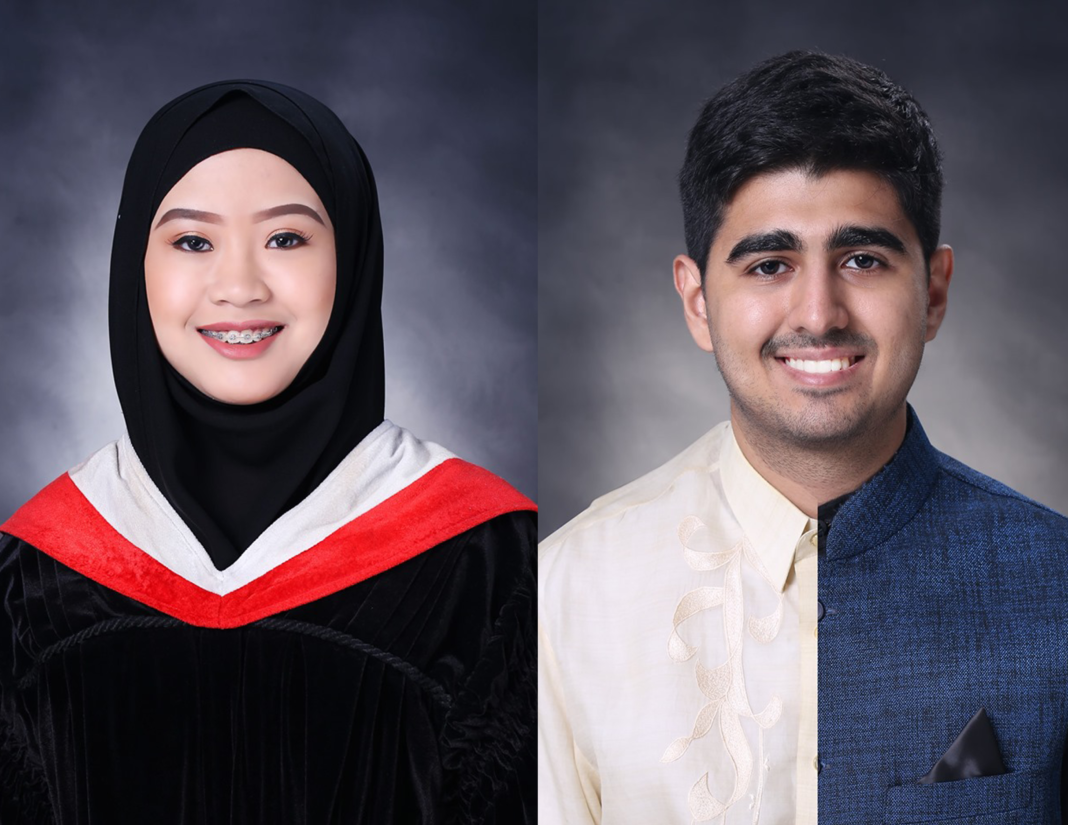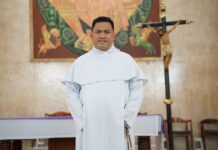TWO GRADUATES prove having a diverse background is an asset in dealing with stereotypes and challenging cultural and religious barriers in the University.
In a viral Facebook post of his graduation photo where he is dressed in a traditional barong and a photoshopped Nehru jacket from India, Vashwin Amarnani said his diverse upbringing allowed him to respect and understand the perspective of others.
Indian by blood and Filipino by citizenship, Amarnani said his background allowed people to be more open to him in terms of discussing sensitive issues such as religion and race, among others.
“I have learned the importance of respect: respect of all cultures, of all religions, of all people, of yourself. Even if most of the time jokes or questions sound sarcastic (and slightly racist), I have come to admire people who have a genuine interest and respect for the beliefs of others,” the post read.
The 21-year-old psychology graduate who practices Hinduism said he “never felt discriminated” because of his religion in his stay in UST – the oldest Catholic university in Asia.
“I actually genuinely enjoy when people are willing to talk about other faiths with me. I think that having open and respectful communication about sensitive topics is important in today’s society,” he told the Varsitarian.
“I [believe] that there is no harm in reading the Bible or the Qur’an. The way I see it, there is wisdom in every religion and none of them will teach you anything wrong,” he added.
Amid her religious background, Muslim accountancy graduate Jomana Lomangco also affirmed that she never felt discriminated nor stereotyped inside the four walls of the University.
In her Facebook post, Jomana Lomangco said she was warned beforehand that her decision to study in a Catholic institution might alter her faith, but insisted that UST instead taught her of the importance of looking at similarities rather than differences in achieving mutual respect.
“We should learn to see our similarities rather than differences because through that we can appreciate each other’s existence and live in a world where respect is equally given,” she said.
The 21-year-old Lomangco said the University was very accommodating and the people did not treat her differently. She added that her five-year stay in UST also taught her of the appreciation of one’s existence and acceptance of diverse beliefs.
“Never have I felt discriminated in the four walls of the university. Never have I felt less just because I’m a Muslim. Never did they leave me out just because of my faith,” the post read. “To be of a certain faith, may it be Christianity or Islam, is to be human. And to be human is to respect and accept each other in spite of the differences in our beliefs.”
Amarnani, meanwhile, said the International Students Association (ISA), the university’s sociocultural organization that promotes amity among and unity of diverse cultures on campus, has been helpful to international students like him as it offers activities that help students to further understand Philippine culture.
“I believe that the University is relatively inclusive to all people. I once attended an event held by the ISA and [Office for Student Affairs] where they discussed the possibility of a cultural sensitivity training for [UST professors]. I think that would be a great step in the right direction,” he said.
As president of the College of Science Student Council and deputy speaker of the Central Board for Academic Year 2018-2019, Amarnani said he had suggested to UST Rector Herminio Dagohoy, O.P and to some student leaders that some theology courses be oriented toward understanding other religions.
Dagohoy, he said, responded that inclusivity in terms of religion was something that needed to be worked on, especially in the future UST satellite campus in General Santos City in Mindanao that “will almost surely have a more diverse population in terms of religion.”
For Lomangco, UST is an institution that promotes acceptance amidst diversity.
“UST is a place where people can freely exercise their faith and be respected for it. It’s where I met my friends with different beliefs who also learned about mine,” she said.













